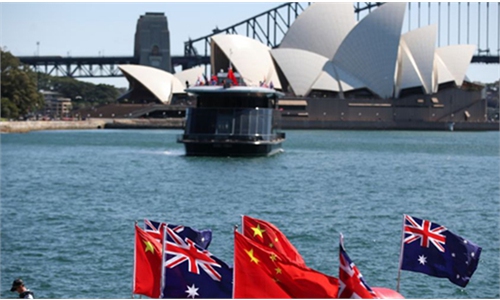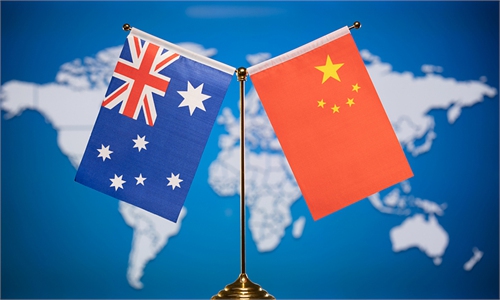COMMENTS / EXPERT ASSESSMENT
Blaming Beijing for LNG price hike will only hurt Canberra

Illustration: Tang Tengfei/GT
The price of liquefied natural gas (LNG) has surged to record highs in recent tradings, with the weekly spot price assessment settled at an all-time-high price of $21.45 per million British thermal units. While most market analysts are focusing on the underlying market factors including seasonable price movement, a few analysts are seeking to lay the price hike on China.Choosing to politicize a trade matter, a few industry analysts from Western media outlets have baselessly linked a normal price rally driven by winter demand peak with the feud between China and Australia.
Overplaying the reported temporary power shortages in some regions of China, an article on the Forbes last week call the recent LNG price spike a "perverse effect of China's trade attack on Australia," making totally false and unreasonable criticism on China.
There is no doubt the price of LNG has shot up compared with the bottom of the market in May, but the $21.45 price tag is only slightly higher than the prior record of $20.50 recorded in February 2014. The main reason of the latest rally apparently has no connection with China-Australia diplomatic tensions, but lies in seasonable and market factors.
This winter, which has been particularly cold, is a clear cause of the LNG price surge. In northern Asia, heavy snowfalls have been seen in Japan and temperatures fell to the lowest since 1966 in Beijing city. The rising demand for heating has been driven high in short term by the cold spell. According to Refinitiv vessel-tracking data, a total of 20.1 million tons of LNG was discharged at ports in Japan, China and South Korea in December of 2020, the Reuters reported.
Similar price hikes are occurring when it comes to energy consumption in other regions around the world. According to media reports, the cold winter has also sparked surges in power prices of UK and some parts of Europe.
In addition to the winter demand surge, miscalculations by some buyers of the fuel are probably another factor that attributed to the recent price hike. A Reuter analysis article pointed out that some buyers had misjudged the availability of spot cargo, thus driving up prices in order to secure further supply.
China indeed imported a record monthly volume of LNG in December, overtaking Japan as the world's top importer of the fuel for a second consecutive month, according to Refinitiv Eikon data. However, this is partly due to a surging winter demand, and, the government's push for environmental protection by burning less coal.
As the world's largest coal exporter, Australia should embrace a future where coal will be shunned by overseas buyers, and reform their export structure as necessary.
It should be noted that Australia is also the second largest LNG exporter in the world. In the latest price rally of the fuel, the country is a large beneficiary rather than a victim. Canberra should drop the pretense that it is a victim and focus on improving the livelihoods of ordinary Australian people.
Australia's recent obsession with blaming all its own economic woes on China is dangerous, and will only further damage bilateral relations. If Australia doesn't actively make adjustments to its own economy and focus on practical measures to improve its relationship with China, it may be too late to save its core industries.
The author is the director of the China Center for Energy Economics Research at Xiamen University. bizopinion@globaltimes.com.cn



